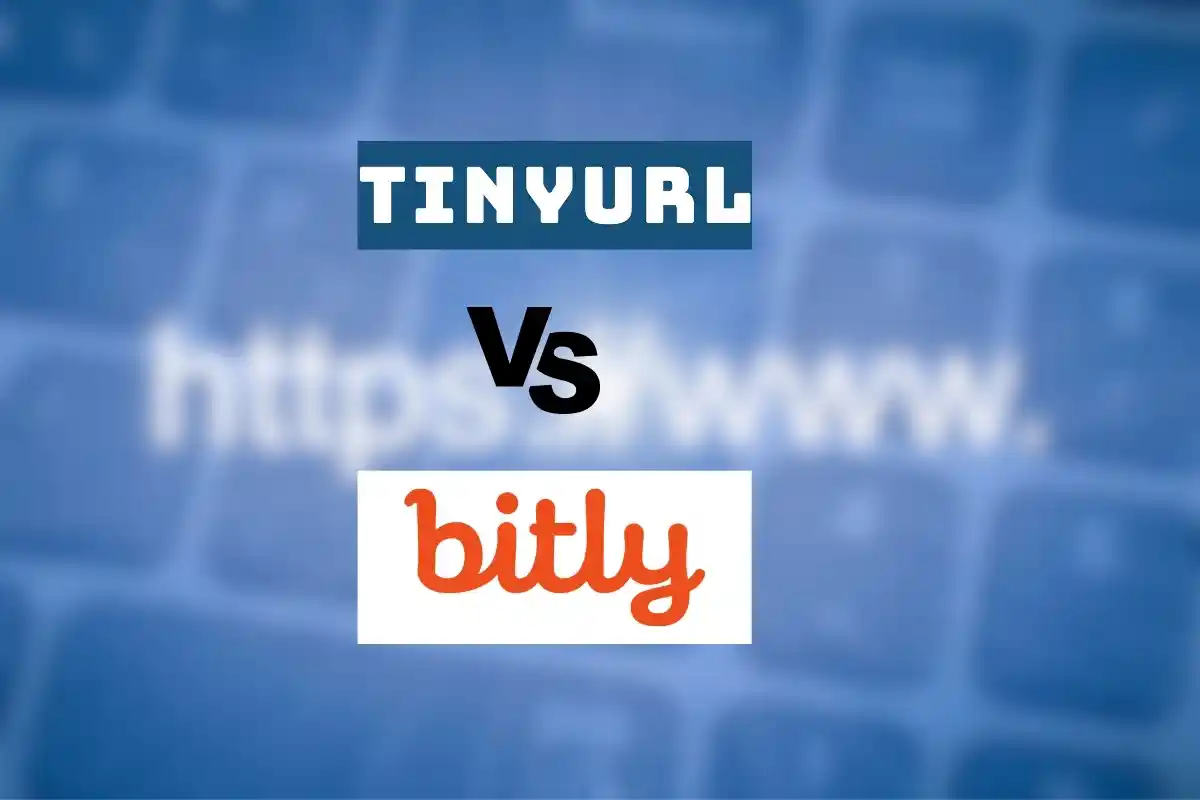When it comes to managing links for marketing, branding, or campaigns, using a URL shortener is almost essential. TinyURL and Bitly are two of the most popular names in this space, each offering its own set of features and benefits. Choosing between them can significantly impact how you track, share, and control your links.
In this blog, you will explore a full breakdown of both platforms, their histories, core features, and how they compare across key areas.
Whether you are running a solo business or managing a large marketing team, making the right choice is easier with the necessary information.
TinyURL Overview
TinyURL is one of the earliest URL shortening services, launched in 2002 by Kevin Gilbertson. At a time when social media was just emerging, TinyURL provided a simple solution: turn long, cumbersome links into shorter, more manageable ones.
Its goal was to make links easier to share, particularly in places where space was limited.
One of TinyURL’s standout qualities is its simplicity. Business owners can create a shortened link instantly without registering or logging in.
It offers basic customization features, allowing users to personalize the latter part of their short link, which can be particularly useful for branding efforts.
Over the years, TinyURL has maintained a loyal user base due to its no-frills approach. While other platforms shifted heavily toward analytics and enterprise features, TinyURL stayed focused on offering a quick and reliable service.
However, it has evolved slightly with new features like TinyURL Pro, providing users with custom domains, tracking capabilities, and additional branding options.
TinyURL also emphasizes security, automatically using HTTPS for all its links to ensure a safer user experience. It is a practical option for businesses prioritizing speed and ease over heavy analytics.
Despite its age, TinyURL remains highly relevant, especially for straightforward link-shortening needs without the complexity of managing large campaigns.
Bitly Overview
Bitly entered the scene in 2008, offering not just link shortening but a more sophisticated ecosystem for managing links. From early on, Bitly positioned itself as a data-driven platform, recognizing that aside from convenience, shortened links could deliver insights.
One of Bitly’s major strengths is its detailed analytics. Every link generated can be tracked for clicks, geographic data, device types, and even the time of interaction.
For business owners, this turns simple links into powerful tools for understanding customer behavior and campaign performance.
In addition to shortening URLs, Bitly focuses heavily on branding. Businesses can create custom-branded links that align with their brand identity, making links look more professional and trustworthy.
This feature alone has made Bitly a favorite among large companies, marketers, and agencies.
Bitly also integrates with many major platforms, such as Hootsuite, Salesforce, and Zapier, streamlining workflows for those managing complex marketing operations. Its dashboard is designed to be user-friendly while still offering the depth needed for data-driven decision-making.
Today, Bitly continues to be a link management leader, serving both small businesses and enterprise-level clients.
With paid plans offering features like campaign management, bulk link creation, and deeper integrations, Bitly is a powerhouse for those who need more than just basic link shortening.
Feature-by-Feature Comparison: TinyURL vs Bitly
TinyURL and Bitly offer reliable link shortening services, but key differences emerge when you dig deeper into their features. Let’s walk through the major areas where they stand apart and where they overlap.
Ease of Use
TinyURL is known for its simplicity. You can shorten a link instantly without logging in. Bitly, while still user-friendly, often requires creating an account for access to advanced features, which can feel like an extra step for quick needs.
Customization Options
TinyURL allows basic customization by letting you edit the URL’s back half. Bitly takes this a step further with branded links, letting businesses use custom domains to match their brand, offering a more professional appearance.
Link Management
Bitly provides a complete dashboard where you can organize, search, and edit your links. TinyURL offers fewer link management options unless you are using its Pro version, which adds some organizational tools but remains more limited than Bitly’s suite.
Analytics and Tracking
Analytics is one of Bitly’s biggest advantages. It tracks clicks, geography, devices, and engagement patterns in great detail. TinyURL offers some click tracking through its Pro plan, but it is less comprehensive and real-time compared to what Bitly provides out of the box.
Integrations
Bitly seamlessly integrates with platforms like Zapier, HubSpot, and Salesforce, making it ideal for businesses that want to automate marketing tasks. TinyURL offers limited integration options, mainly focusing on standalone link creation without deeper workflow connectivity.
Security and Reliability
Both services prioritize security, using HTTPS encryption to protect link users. TinyURL’s links are straightforward and consistent, while Bitly also allows users to monitor and manage suspicious activity tied to their links through added settings.
Free vs Paid Value
TinyURL’s free version covers the basics exceptionally well, making it an excellent tool for casual or light business use. Bitly’s free version has stricter limits, encouraging users to upgrade for more capabilities, but it offers a richer feature set once upgraded.
Security and Trust: Why They Matter in URL Shortening
As digital marketing grows more complex, security and trust have become essential factors when choosing a URL shortener. A shortened link might seem simple, but it carries significant responsibility for your brand image.
Users are cautious about clicking unknown links, especially with the rise of phishing attacks and scams. Both TinyURL and Bitly recognize this concern and have made strides to ensure links are safe and reliable.
TinyURL uses automated tools to detect malicious links, ensuring a safer browsing experience for your audience.
Bitly goes a step further by offering HTTPS encryption for all links, adding a layer of protection and trust. It also monitors suspicious activities, helping brands maintain credibility even during large campaigns.
For businesses, using a trustworthy shortener isn’t just about avoiding technical issues; it’s about preserving brand reputation. If users feel secure clicking your links, they are much more likely to engage.
When picking a service, always consider how seriously they take security measures. A slight misstep can cause major damage to customer trust, while a secure approach can reinforce your brand’s professionalism and reliability online.
Pricing Comparison
Pricing structures can significantly influence which platform fits a business’s needs better.
TinyURL offers a generous free version with unlimited link shortening and basic customization. The Pro plan starts around $9.99 per month and offers advanced features like link tracking, custom domains, and branding, making it relatively affordable for small businesses.
Bitly also provides a free plan, but limits the number of links you can shorten and track. Their core plan starts at around $10 per month for basic features.
Still, depending on the business size and needs, plans can easily exceed $29 or over $200 monthly for more comprehensive analytics, branded links, and team functionalities.
For businesses prioritizing budget over deep analytics, TinyURL might offer more value. But for companies that need extensive tracking, branded campaigns, and multiple integrations, investing in Bitly can be worth the higher cost. Understanding business goals will make choosing between them much easier.
When to Choose TinyURL Over Bitly (and Vice Versa)
Choosing between TinyURL and Bitly often comes down to the specific needs of your business. Let’s break down when each tool makes the most sense for different situations.
When to Choose TinyURL
TinyURL is a strong choice if you value speed, simplicity, and minimal setup. It allows instant link shortening without the need to sign up, saving time when efficiency is critical.
Businesses that need unlimited link shortening on a budget will also find TinyURL’s free plan more forgiving. Its straightforward setup makes it perfect for occasional link sharing, newsletters, or internal use.
TinyURL is also a good fit for smaller businesses that don’t require deep analytics or integrations. If your brand can get by with basic customization and reliability, TinyURL delivers everything you need without complication.
When to Choose Bitly
If detailed analytics and campaign tracking are crucial for your marketing strategy, Bitly is the better option. It gives you rich data insights that help you optimize links for better performance.
Companies needing team collaboration, branded domains, or CRM integrations will find Bitly’s ecosystem more business-friendly. Bitly also makes scaling easier, offering features that grow with your marketing needs.
When professionalism and full control over branded links matter, Bitly’s customization tools provide an edge. For long-term strategies and measurable campaigns, Bitly justifies its investment through depth and flexibility.
Emerging Trends in URL Shortening and How These Brands Are Evolving
The world of URL shortening is rapidly evolving as digital marketing grows more sophisticated. Here’s a quick look at some trends shaping the future of tools like TinyURL and Bitly.
- Greater emphasis on branded short links for trust and brand consistency
- More innovative link analytics that measure deeper engagement beyond just clicks
- Integration with AI to predict and optimize the best-performing links
- Enhanced security protocols to combat phishing and spam attacks
- Expansion into QR code generation and management for mobile campaigns
- Features supporting decentralized and blockchain-based web technologies
- Personalized short links driven by dynamic audience targeting
Both TinyURL and Bitly are adapting by adding new capabilities. TinyURL is refining its Pro features, focusing on customization and tracking. Bitly continues expanding its enterprise offerings, strengthening integrations, and experimenting with smarter analytics.
Staying updated with these trends can help ensure that businesses are leveraging every possible advantage in link management and marketing.
Conclusion
Both TinyURL and Bitly bring powerful tools to the table, but the right choice ultimately depends on your business’s specific needs.
TinyURL offers simplicity, affordability, and speed, making it ideal for basic use. Bitly shines when you need rich analytics, brand control, and campaign scalability.
As URL shortening continues to evolve, both platforms are keeping pace with innovations that can help your marketing strategies stay sharp.
Taking the time to match your needs with the right service will save money and set the stage for better customer engagement and measurable results.







